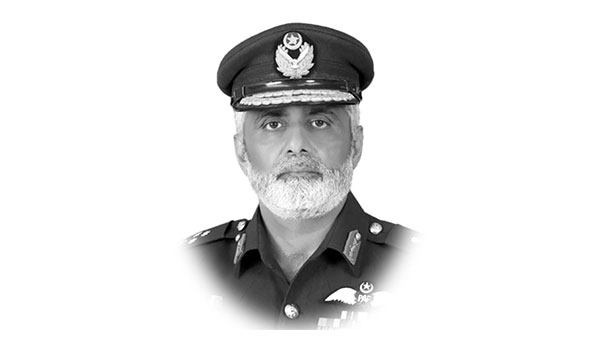Rise of mercenary warfare and wither chivalry
THERE is many a boy here today who looks on war as all glory, but, boys, War is all hell. This is a famous quote attributed to the Union Army General William Tecumseh Sherman, while speaking to a group of young cadets much after the end of the American Civil War.
Sherman’s reference to ‘glory’, and the aspirants amongst the cadets to seek that glory in war, is not a surprise observation.
In spite of its destructiveness, war has remained an object of glorification throughout recorded history.
Fighting for one’s country and ideals which define it, has been a matter of honour for soldiers around the world.
Chivalry, a word first used in the year 1292 AD, actually referred to ‘a way of fighting, a set of ideals in warfare, and a whole system of society based around the idea of the noble warrior’ and a just war.
Chivalric ideals soon transcended the knighted community and became deep-rooted in medieval culture.
Literature of that era is rich with portrayals of ‘noble valour’ of warriors and romanticism associated with the core spirit of war.
War was still blood, terror, tactics, and death, but it was also tales of bravery, show of camaraderie, display of honour and valour.
The two sets of characteristics go hand in hand. Such is the paradoxical nature of war. Or so, one thought.
Notwithstanding the age-old idea of glory and nobility which existed alongside the brutality of war, a few innovations have made the face of war uglier and even more ignominious.
One such innovation is the arrival of mercenaries on the battlefield. Mercenary force of course, is not a new phenomenon in the history of warfare.
The Encyclopaedia Britannica mentions their existence as a part of organised warfare ‘from the earliest days until the development of political standing armies in the mid-17th century’.
These hired soldiers, often greedy, brutal, and undisciplined, were capable of deserting on the eve of battle, betraying their patrons, and plundering civilians.
Ironically, NiccoloÌ Machiavelli (1469–1527), author of the ‘The Prince’, who favoured a somewhat deceitful and treacherous view of politics described mercenaries as ‘disunited, ambitious, without discipline, unfaithful; gallant among friends, vile among enemies; no fear of God, no faith with men.’
In the late 20thCentury, while the phenomenon of corporations was still on the boom, especially in the West, a trillion dollar market of ‘War’ was found to be the new frontier for the lucrative profit- making business of mercenaries.
Thus, started the era of Private Military and Security Corporations (PSMCs) which continue to flourish till today.
Although a few of these companies like Executive Outcomes and Sandline International, gained prominence in the conflicts in Angola, Sierra Leone, Papua New Guinea and Liberia, the existence of PMSCs became a public discourse upon their widespread employment by the United States (US)in Iraq in 2007.
By the year 2010, US companies such as Blackwater (now Academi), DynCorp, Triple Canopy, Sabre etc. , were providing 207,000 private men, both armed and unarmed to the US war effort as compared to 165,000 regular troops which were deployed in the different war zones.
The era of a franchised war had finally arrived. The Russian Federation followed suit by resorting to the Wagner Group, another PMSC, for her war effort in support of separatists in Donbas, Ukraine during 2014-15.
The same company was again used extensively by the Russians in the Syrian and Libyan conflict.
The present war in Ukraine has once again brought to the fore the high demand for private contractors, as both sides look to boost their war effort.
There have been efforts to draw a distinction between a mercenary and a private contractor, often with a desire to justify the widespread use of the latter in war zones.
There remains gaps and ambiguities in relevant International Laws to tackle the issue clearly.
The fact is that in the heated environment of war, it is difficult to distinguish between the two roles.
The line is, indeed, blurry. ‘If you have the skill-set to be a private contractor, you have the skill-set to be a mercenary,’ according to Dr Sean McFate, an-ex US paratrooper who later served as a contractor in Africa, and who is now a Professor at the National Defence University, Washington.
‘It comes down to market circumstances and the decision of the individual person’, he adds.
These two determinants, amongst others, have often resulted in brutal abuses and atrocities perpetrated by private contractors against civilians.
During the Iraq War, a squad of Blackwater mercenaries killed 17 civilians at Nisour Square, a traffic intersection in Baghdad.
The ensuing international uproar and multiple high-level investigations did nothing to preclude repetitions of a horrific massacre.
Similar gruesome killings have been attributed to the Wagner Group in Syria. Various reasons, including swift deployment, continuity, reduction in military casualties and economic benefits are often cited to rationalise the increasing use of mercenaries.
Notwithstanding some of these benefits, the fact remains that war has become uglier, more unethical and arguably longer due to their presence.
By ‘turning profit motive into a war strategy’, the employer nations hiring these mercenaries have made war completely devoid of its once ‘chivalrous ‘soul.
If such mercenaries/groups continue to be seen as an ‘essential’ part of conflict/strategies of war, the future of peace looks increasingly bleaker.
Commenting on the ever-increasing role of mercenaries, Dr Sean McFate, rightly observes: ‘Who, how and why people fight will change, and there will be wars without states, accelerating global chaos.’
—The writer is presently working as Senior Director at the Centre for Aerospace & Security Studies (CASS), Islamabad, Pakistan.










